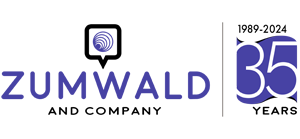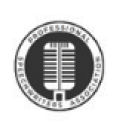Speakers, steer clear of the loop-the-loop (10 ways to pace yourself every time you speak)
 It was an unforgettable afternoon keynote – but for all the wrong reasons. Turns out I couldn’t understand a word she was saying.
It was an unforgettable afternoon keynote – but for all the wrong reasons. Turns out I couldn’t understand a word she was saying.
Clearly she had the clout to wow us with something wonderful. And indeed she started out OK, engaging us with a story about her best friend Steve.
But then – like a rollercoaster grabbing the rails and inching up and up that first big hill … going … going … going …
There she was – GONE! Speed-talking her way through a 60-minute keynote.
And there we were: hundreds of us along for the ride, hanging on for dear life through cobra rolls and corkscrews, dive loops and double dips.
My head was spinning, but this was no thrill. Because every one of her words-sentences-paragraphs-thoughts blendedrightintothenext.
Please! (I thought to myself) – please come up for air so we, too, can breathe!
It was a mind-numbing, brain-aching hour of my life I’ll never get back.
Desperate folks fidgeted in their seats, counted windowpanes and sought an escape. Because no brain on earth could process these concepts at her speed of talking.
It was a shame for three reasons:
- Hundreds of professionals like me had paid good money to hear what this expert had to say. And we walked away with nothing. (I’m an avid laptop notetaker, and what I captured were cryptic words in random fits and starts, devoid of any meaning.)
- What she had to share was worth sharing. But since nobody heard it, she wasted her time.
- By frustrating her audience, she blew any chance to win new customers for her firm. It was a lost opportunity.
Are you a fast talker when you speak?
When people can’t keep up, they tune out. Here are 10 tips to make sure your audience can process everything you have to say:
- If you talk too fast, you’re probably trying to say too much. Read your work out loud. If you have two examples, will one do? Are you over-explaining? Have you said the same thing twice, just in a different way? If so, then cut. Ruthlessly.
- Consider why you speak fast. Are you nervous? Unprepared? Trying to “get through” the speech to get it over with quickly? If so, you’d benefit from more preparation:
- First, take a closer look at your content; how can you improve it?
- Second, spend more time on rehearsals. Most people I know don’t spend near enough time rehearsing their material (a once-over or twice-over just doesn’t cut it). The more you practice, the more confident you will become.
- In your prepared speech:
- Put slash marks / between key phrases / that need pauses. Those slash marks / will force you / to pace yourself / properly.
- Break up long paragraphs; emphasize a profound point by keeping it on a line by itself, which will naturally help you slow down.
- Avoid long sentences, which lead to speed; shorter sentences inspire a slower pace.
- Always use bullets when listing two or three items – even if they’re short – instead of running them into a single sentence.
- Put marks like this – # # # – between each section of your speech to remind yourself to pause longer and get the audience ready for what’s next.
- Warm up before you rehearse by reading poetry aloud. It’s a good way to train your brain to pronounce every. Single. Word.
- To start, take one or two deep cleansing breaths. Then take real breaths throughout. Because when you take a moment to breathe, you pause. And when you pause, you automatically exude confidence and give your audience much needed time to ponder what you just said.
- Use deliberate gestures and eye contact to help you speak more slowly and with intention. Gestures and eye contact help make every word count.
- Record your rehearsals with your smartphone. Listen carefully, and then fix trouble spots.
- Pay attention to two or more adjacent words that come out sounding like a single word, and words that start or end with B, D, P or T. If you tend to drop word endings, or if a particular phrase gives you trouble, recast it. (Remember: You audience only gets one chance to hear what you’ve said, so make sure they actually hear it.)
- Time yourself; how fast are you speaking? A good average to shoot for is about 140 words per minute. Now time yourself again – but speak more slowly on purpose. How much more effective is your deliberate, slower pace?
- Pay attention to cues from the audience. If people are focused on something else in the room and not on you, you’ve lost them. Take a breath and slow your pace.
People in our distracted age need time to process and connect the dots.
After all, you have something wonderful to say, and you want it to sink in.
If you need people to remember and act on your words of wisdom, make sure you take them on a smooth cruise every time – not on a frantic, hair-raising rollercoaster ride.

















